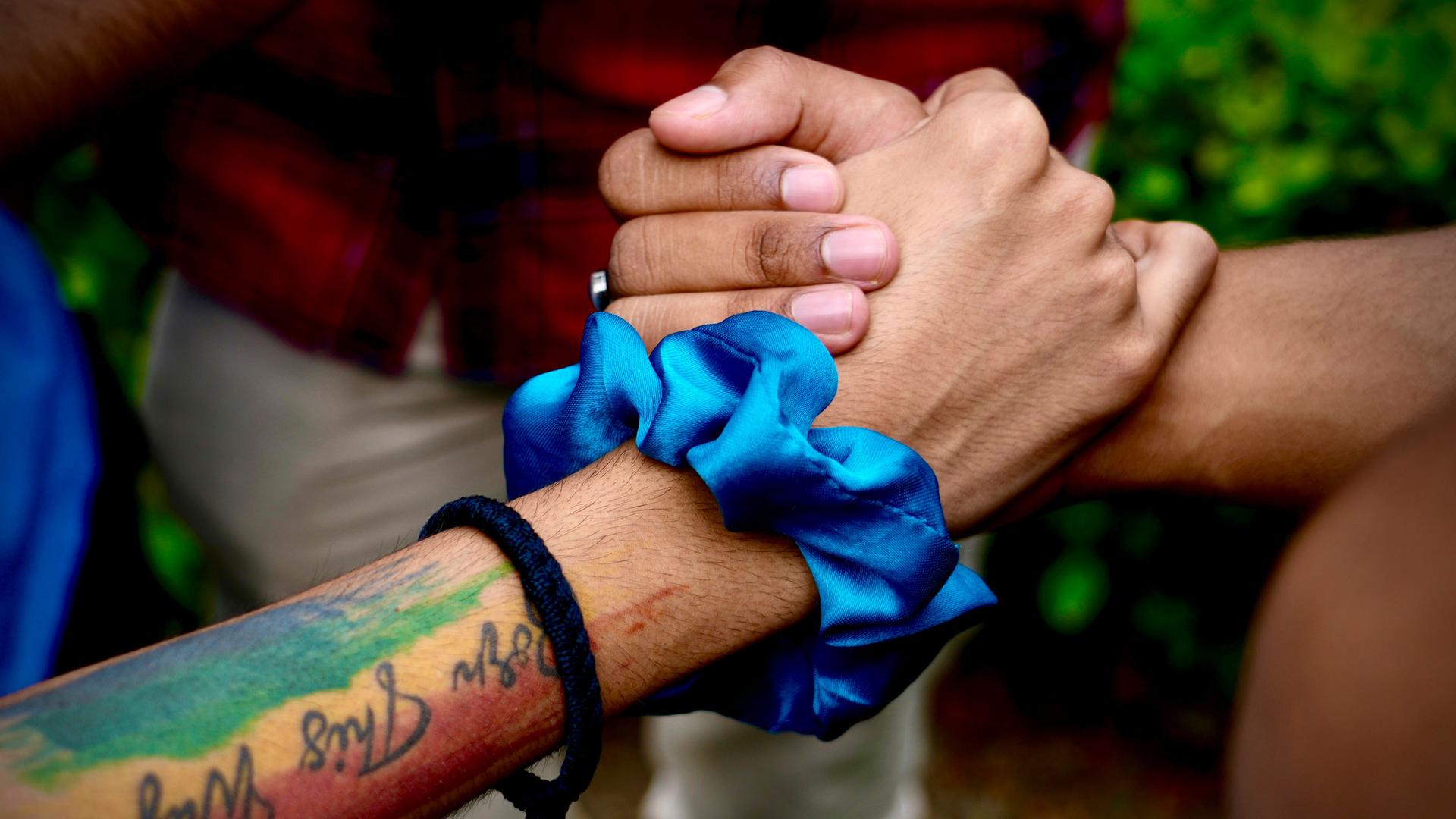‘We still need to fight’: Indian Supreme Court rules against same-sex marriage
In a hotel restaurant in northern Mumbai on Tuesday, Inder Vhatwar watched as the Indian Supreme Court livestreamed a judgment on same-sex marriage in India. His partner of 11 years along with several friends also sat by his side to watch the two-hour proceeding.
After 10 days of hearings in April and May, the Supreme Court delivered a unanimous, five-judge decision asserting that the constitution does not guarantee the fundamental right for same-sex marriage.
“From the beginning, we’ve been fighting for everything. And I think [the judgment] says that we still need to fight…again,” Vhatwar said.
Five years after another landmark Supreme Court ruling which decriminalized homosexuality, some activists say there is a noticeable shift in mindset among many Indians when it comes to LGBTQ rights.
A Pew Research Center poll released in June found that 53% of Indians are in favor of marriage for same-sex couples, up from 38% in 2014.
Kunal Ambasta, who teaches at the National Law School of India University, said that in the justices’ written opinions, “you see that the language of equality, dignity has been completely constitutionalized, it has been completely accepted.”
In one of four separate but overlapping opinions issued by the court, Chief Justice DY Chandrachud spoke at length about the challenges faced by many in the LGBTQ community.
However, he and the other justices ultimately sided with the Indian government, which held that there are “institutional limitations” that require the topic of same-sex marriage be debated in parliament rather than the courts.
Anything else, Chandrachud said, would mean they were “entering the realm of the legislature.” The judges deferred to a government-formed committee that would look more closely into the rights of same-sex couples.
“Everything seems to have been kicked down to this committee,” Ambasta said, while pointing out that its framework and guidelines are murky. “We do not know how this committee, and when this committee, will sit and decide [on these protected rights].”
The committee would be organized by the ruling Hindu nationalist Bharatiya Janata Party; the government’s Solicitor-General, Tushar Mehta, argued against same-sex marriage in court, saying it went against Indian values, and that it is an “urban” and “elitist” concept.
Chandrachud clarified that people who identify as transgender can already legally marry a person of the opposite sex. Two justices also indicated a willingness to consider rights around civil unions and adoption — but the majority of the panel disagreed.
The Supreme Court Bar Association also stated that the decision should be up to Parliament rather than the judicial system.
Niharika Karanjawala, a lawyer who represented petitioners before the Supreme Court, hopes that despite its opposition, the government recognizes that LGBTQ rights are “an important issue for a significant segment of the population.”
She said that the government is unlikely to take serious action prior to a crucial 2024 election cycle, but that the chances are higher if, and when, “the will of the people goes a certain way.”
For the government to act in favor of LGBTQ community, she said it is essential that there is a “showing of the requirement for these rights by all members of the LGBTQ community, their families, their friends – all allies who stand with them.”
For those who gathered together at the LGBTQ-friendly hotel in Mumbai to watch the verdict, the decision was deeply disappointing, but also a signal to continue working toward greater equality.
Vidya Phadnis, an 80-year-old woman, said she hopes to see her son – who is gay – married “before I close my eyes.” However, she remained resolute. “We’re not going to give up,” she said, “because it’s a question of our own children,” adding that all parents hope to see their children happy and fulfilled.
As for Inder Vhatwar and his long-term partner, they decided not to wait. They married in a small ceremony that was not legally binding. One day, however, they want to hold a larger ceremony for their friends and families for their legally recognized marriage.
“We’ll still fight,” Vhatwar said. “And it’s maybe not for us. Maybe for the coming generation they will have the benefits.”
For now, petitioners and activists are closely examining the Court’s judgment, as they decide next steps.
Our coverage reaches millions each week, but only a small fraction of listeners contribute to sustain our program. We still need 224 more people to donate $100 or $10/monthly to unlock our $67,000 match. Will you help us get there today?
